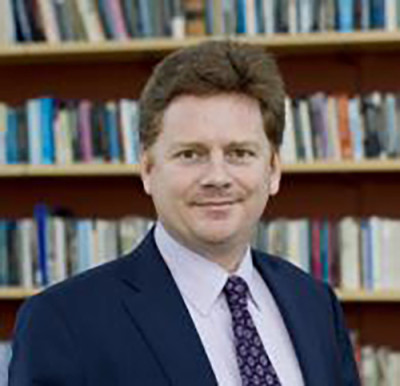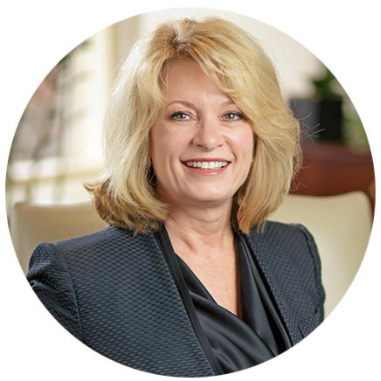Guest MINDSETTER™ Seyler: Critical Spending Requires Critical Thinking at CCRI
Tuesday, January 17, 2017
GoLocalProv has reported that Rhode Island has a projected deficit of one hundred twelve million dollars. Some legislators’ goals of continuing a commitment to education and to reducing waste and redundancy have also appeared in these pages. With those stated goals in mind, I am confounded by the fiscal choices I continually witness as a CCRI faculty member.
Last March I wrote to legislators to express concern at the performance-based funding approach to improving CCRI retention and graduation rates. Concisely, my concerns centered on the fact that we are an open enrollment institution - meaning we have some students reading and writing at third grade levels sitting in classes designed for college ready students - we have approximately twenty full-time advisors for a student population of typically fifteen thousand students, we have no mandatory orientation, too few tutors – all of whom are part time, and Student Disability offices on some campuses staffed at only nineteen hours a week with test proctoring available for as little as five hours a week. My argument then was to give CCRI funding to rectify these deficiencies before holding us accountable for specific performance standards.
It’s slightly less than a year later, and as far as I know, no money has been spent on this kind of student support. Instead, we have experienced a top-down approach of creating and filling an unprecedented number of new and highly paid administrative positions. Especially upsetting is the redundancy of these positions easily seen and documented by some astute faculty.
GET THE LATEST BREAKING NEWS HERE -- SIGN UP FOR GOLOCAL FREE DAILY EBLASTThese previously existing and new administrative positions have job descriptions that include strategic planning responsibilities, yet it has come to the attention of faculty that contrary to our tradition, the administration is in the process of hiring an outside firm for a six-month contract to create and facilitate a strategic plan for CCRI. How many times are we going to pay for strategic planning? We are clearly staffed with administrators and faculty possessing the credentials to do that.
This situation is especially dismaying when our college president tells us we cannot expect the full amount of funds we need from the state in the next few years and we “…need to operate in an increasingly lean fashion…” It is dismaying when a tuition hike has recently been deemed necessary, and this is how the money gets spent, while the need for the hike is publicly attributed to the cost of hiring faculty.
Who oversees CCRI’s budget? The legislature? The Council of Postsecondary Education? Where does the buck stop?
As a taxpayer, I am upset by the ill-conceived approach to spending my tax dollars. As a CCRI faculty member, I am upset by the disregard for the dire need for expenditures in the area of student support that would contribute to improving student success. As a state employee who was told I had to forgo a raise for 2013 and 2014 due to lack of money, I am upset by the prospect of being told that once again at the next contract negotiation because of the current choices creating redundancy and bloat here at CCRI.
This is the one area where budget money is allocated with which I am personally familiar – I believe a series of pieces from people like me –inside an institution or agency – elucidating the approach to expenditures within, would be eye opening for taxpayers. Any takers?
Michele Seyler moved to Rhode Island fifteen years ago. She is an Assistant Professor of English at CCRI, where she has taught for twelve years.
Related Slideshow: The Power List - Health and Education, 2016
Related Articles
- Guest MINDSETTER™ Taub: I am Jewish & I Support Mr. Bannon
- Commerce RI is Launching a Big Program to Boost Small Biz, Guest MINDSETTER Early
- Guest MINDSETTER™ Rep. Costa: Post Election Suggestions for Disgruntled Americans
- Guest MINDSETTER™ Sen. Metts: Post-Election Thoughts at Thanksgiving
- Guest MINDSETTER™ Rep. Shekarchi: The True Nature of Study Commissions
- Guest MINDSETTER™ Gardiner: Measure President Trump by Healthcare Reform
- Guest MINDSETTER™Tammaro: Qatar Airways Has No Place in Boston
- Guest MINDSETTER™ Sen. DiPalma: RI Needs to Stay Proactive in Targeted Investments in Education
- Guest MINDSETTER™ Leos: This Hispanic Heritage Month Brings Lessons for Everyone
- Guest MINDSETTER™ Sen. Sheehan: Vote Yes on Question 2
- Guest MINDSETTER™ Girouard: How Well Have Our Incumbents Led?
- Guest MINDSETTER™ Stenhouse: DeVos as Sec. of Education - National School Choice Around Corner
- The Tweeter in Chief - Geoffrey A. Schoos, Guest MINDSETTER™
- Guest MINDSETTER™ Rep. Ruggiero: Rhode Islanders are Doers
- Guest MINDSETTER™Joe Allen: The Metric-Mania of Higher Education
- Guest MINDSETTER™Taub: Senators Reed & Whitehouse Stab Israel in the Back AGAIN
- Guest MINDSETTER™ Steven F. Forleo: Trump is a Machiavellian Poseur
- Guest MINDSETTER™ Congressman McGovern: America Cannot Afford Trump’s Nuclear Arms Race
- Guest MINDSETTER™ Tom Kenney: Bankruptcy for Providence?
- Guest MINDSETTER™ Lambrese: Opioid addicts deserve dignity, not death
- Guest MINDSETTER™ Morse: The Station & The Ghost Ship
- Guest MINDSETTERS™ Sen. Miller & Rep. Slater: RI Should Regulate Marijuana
- Guest MINDSETTER™ Forleo: Festivus For The Rest of Us
- Guest MINDSETTER™ Rep. Nunes: General Assembly Needs a Cinderella Rule, and More
- Guest MINDSETTER™ Tom Kenney: Pare & Elorza Still Have No Clue About the Fire Department












